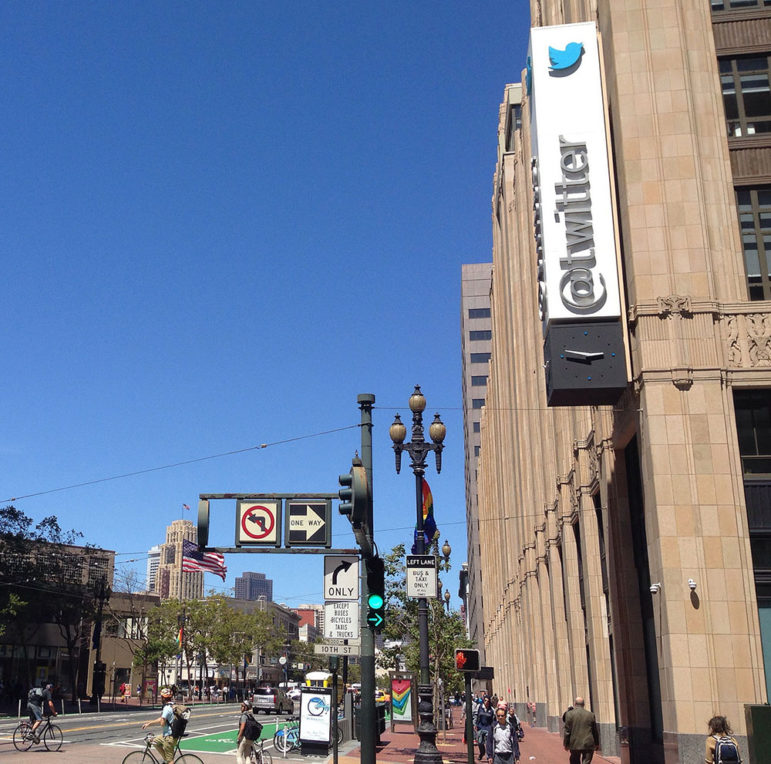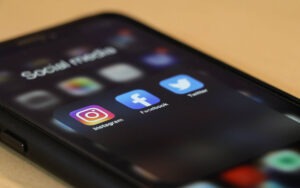
This week, the buzz in the business world has been about the potential sale of Twitter. The Wall Street Journal is reporting that Twitter is working with the Goldman Sachs Group to consider offers from companies like Salesforce.com and even Disney. (More recent anonymous sources report that Google and Apple will not be moving forward with bids.) The WSJ goes on to say that with Twitter having a market value of about $17 billion, it is an enticing acquisition candidate to media and tech companies interested in valuable data and marketing opportunities created by its 313 million monthly users. But the tech brand is also struggling with flagging usership and revenue growth, leaving the social media company ripe for a takeover.
In February, CNN reported that the company lost two million users in the last quarter of 2015 and saw its stock shares plummet 12 percent. Twitter has struggled to create revenues for years, attempting different avenues to build membership, including rolling out a “Moments” feature that bundles messages about current events, loosening the 140-character limit on tweets, and showing tweets in the order most likely to appeal to each person’s perceived interests rather than in a chronological fashion. However, these efforts have failed to help Twitter realize itself as a profitable social media brand.
However, over the last three months, stock prices have risen 45 percent over reports that it might be closer to a sale. But is this the only option for Twitter, or should the platform consider the nonprofit route? It’s not a crazy thought; Twitter has been widely known for pushing social justice movements. The Black Lives Matter movement started as a Twitter hashtag, and when Egypt was exploding with protests amid a political crisis in January 2011, Twitter was one of the main media used to spread news about the protest in spite of blocked access to the Internet.
Laura Palumbo of the National Sexual Violence Resource Center brought up the #Cosby hashtag, which trended when as discussion built on the accusations against Bill Cosby. Palumbo went on to tell NPR that victims used it “to contribute their perspectives to the same threads as media, lawmakers, and the other audiences who are following these stories.”
Sign up for our free newsletters
Subscribe to NPQ's newsletters to have our top stories delivered directly to your inbox.
By signing up, you agree to our privacy policy and terms of use, and to receive messages from NPQ and our partners.
And there is precedent for such a business move. When rival web browsers Netscape Navigator from Mozilla and Internet Explorer from Microsoft battled it out to Microsoft’s victory, a nonprofit emerged called the Mozilla Foundation. The Mozilla Foundation created Firefox, the first real competition to Internet Explorer, which was free and available to everyone. In 2009, Firefox surpassed Internet Explorer as the number one Internet browser, with CNET reporting that Firefox claimed 22.51 percent of the global browser market and topped 48 percent of the browser market in Europe. Chairman Mitchell Baker told the news outlet in 2009, “We are only successful because of our current status. We are a public benefit organization dedicated not to making money but to improving the way people everywhere experience the Internet.’”
Baker went on to recently tell NPR, “Financial sustainability is not the same as endless growth and profit. So it fundamentally colors the nature of the organization. It allows us to make a range of decisions that would be difficult otherwise.”
Twitter still has other issues in its business model to consider, such as its handling of online bullying and harassment. The app is known for frequent use by hate groups, and has just recently developed strong policies against hate speech, as demonstrated by its recent permanent ban on British right-wing commentator Milo Yiannopoulos after his unrelenting attacks on comedian and Ghostbusters star Leslie Jones. It also faces serious rivalries in Facebook and Snapchat. Kelly McBride, with the nonprofit journalism think-tank Poynter Institute, told NPR she thinks Twitter isn’t growing its user base because it has competition.
“Their app just isn’t that awesome to use on your phone,” she says. “It doesn’t give you the type of emotional feedback that Instagram, or Facebook, or Snapchat gives you.”
And by some lights, the social media brand could already be considered “not for profit,” reporting a net loss of 107 million dollars in the 2nd quarter. But in spite of these recent losses, Twitter is still big business, boasting lucrative streaming deals with the NFL and a partnership deal with the music service Soundcloud. Perhaps those partnerships and a nonprofit business model could be just what Twitter needs to save itself.—Alexis Buchanan













